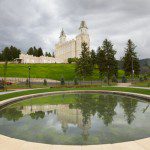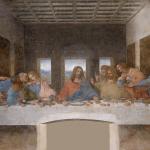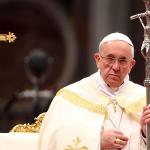
This is the column that I published in the Deseret News on Thanksgiving Day 2011:
Autumn harvest festivals were and are common across Europe, and, as every American schoolchild once learned, our modern Thanksgiving celebrations descend from a meal shared between Massachusetts Pilgrims and Native Americans in 1621.
It was not until 3 October 1863, however, that a uniform national holiday was established by presidential proclamation. Writing well into the Civil War, Abraham Lincoln declared that
The year that is drawing towards its close, has been filled with the blessings of fruitful fields and healthful skies. To these bounties, which are so constantly enjoyed that we are prone to forget the source from which they come, others have been added, which are of so extraordinary a nature, that they cannot fail to penetrate and soften even the heart which is habitually insensible to the ever watchful providence of Almighty God.
After enumerating a substantial and very specific list of material blessings, Lincoln continued.
No human counsel hath devised nor hath any mortal hand worked out these great things. They are the gracious gifts of the Most High God, who, while dealing with us in anger for our sins, hath nevertheless remembered mercy. It has seemed to me fit and proper that they should be solemnly, reverently and gratefully acknowledged as with one heart and one voice by the whole American People. I do therefore invite my fellow citizens in every part of the United States, and also those who are at sea and those who are sojourning in foreign lands, to set apart and observe the last Thursday of November next, as a day of Thanksgiving and Praise to our beneficent Father who dwelleth in the Heavens. And I recommend to them that while offering up the ascriptions justly due to Him for such singular deliverances and blessings, they do also, with humble penitence for our national perverseness and disobedience, commend to His tender care all those who have become widows, orphans, mourners or sufferers in the lamentable civil strife in which we are unavoidably engaged, and fervently implore the interposition of the Almighty Hand to heal the wounds of the nation and to restore it as soon as may be consistent with the Divine purposes to the full enjoyment of peace, harmony, tranquility and Union.
It is a remarkable document—and not only for Abraham Lincoln’s characteristic eloquence.
One is struck, for example, by Lincoln’s sense of gratitude even amidst horrible death, destruction, and tragedy. The great battle at Gettysburg had concluded precisely three months before, and Lincoln himself would fall as one of the Civil War’s last victims only eighteen months later. Yet he calls for national thanksgiving to God.
It’s also impossible to miss the overt religiousness of the statement, and difficult to imagine a similar document emerging from any recent White House. Lincoln writes without embarrassment of God’s grace and paternal care, and, perhaps even more notably today, of our sins and “perverseness and disobedience,” recognizing an authority far higher than his own that rules all human affairs and overrules all human power.
And this authority, Lincoln plainly understands, is a Person. Lincoln doesn’t merely advise his fellow citizens to be satisfied that their fields are productive and to be happy at good weather. He counsels them to recognize a living, willing, conscious Being behind those “gifts,” and to thank that Being for them.
To recognize a divine Person behind nature and human history, to perceive an ultimate and inconceivably powerful Will beneath and beyond the shifting phenomena of our lives and the world, is a characteristic mark of the religious attitude—and submission to that Will, and gratitude to that Person, are among the virtues advocated by all religions of the Abrahamic tradition and most religions worldwide.
Anybody can be happy with his or her material state, satisfied that things are going well, relieved that they’re not going as badly as they could have gone. And everybody should, if possible, devote Thanksgiving Day to strengthening relationships with family and friends. (Most of us, nowadays, eat so very well throughout the year that the Thanksgiving meal in itself is, relatively speaking, unimportant. This isn’t just “Turkey Day”; Lincoln’s proclamation says nothing about food.)
But thanks can only meaningfully be given to persons. Thus, if Thanksgiving is to be practiced as the sixteenth president of the United States—perhaps our greatest—advised, it must expressly involve gratitude to God.











